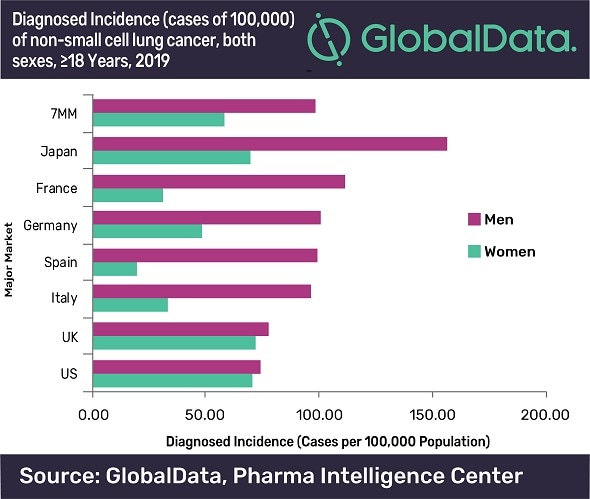As World Lung Cancer Day approaches on August 1st, it serves as a reminder that lung cancer remains a major public health issue, particularly for women. The diagnosed incidence rates of lung cancer have been increasing worldwide among women but decreasing among men. Diagnosed incident rates are higher in men compared to women in the seven major markets (7MM) in 2019. However, we may see a decrease in the difference between rates for men and women in the future, according to GlobalData, a leading data and analytics company.

The number of incident cases in lung cancer in men and women is expected to increase worldwide due to differences in variation of incidence rates, including differences between incidence rates for men and women. The increase in rates among women may be attributed to changes in smoking behavior or a higher detection rate in women through diagnostic screening.
As World Lung Cancer Day approaches on August 1st, it serves as a reminder that lung cancer remains a major public health issue, particularly for women. The diagnosed incidence rates of lung cancer have been increasing worldwide among women but decreasing among men. Diagnosed incident rates are higher in men compared to women in the seven major markets (7MM) in 2019. However, we may see a decrease in the difference between rates for men and women in the future, according to GlobalData, a leading data and analytics company.
The number of incident cases in lung cancer in men and women is expected to increase worldwide due to differences in variation of incidence rates, including differences between incidence rates for men and women. The increase in rates among women may be attributed to changes in smoking behavior or a higher detection rate in women through diagnostic screening.